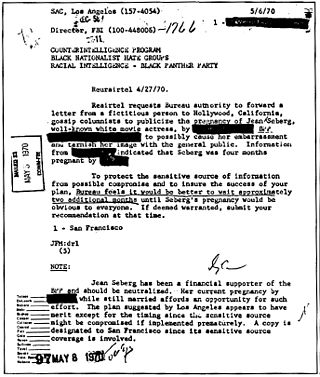
COINTELPRO was a series of covert and illegal projects conducted between 1956 and 1971 by the United States Federal Bureau of Investigation (FBI) aimed at surveilling, infiltrating, discrediting, and disrupting American political organizations that the FBI perceived as subversive. Groups and individuals targeted by the FBI included feminist organizations, the Communist Party USA, anti–Vietnam War organizers, activists in the civil rights and Black power movements, environmentalist and animal rights organizations, the American Indian Movement (AIM), Chicano and Mexican-American groups like the Brown Berets and the United Farm Workers, independence movements, a variety of organizations that were part of the broader New Left, and white supremacist groups such as the Ku Klux Klan and the National States' Rights Party.
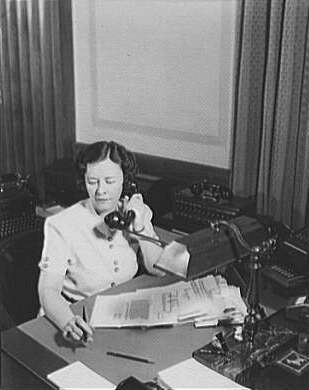
Helen Wilburforce Gandy was the longtime secretary to Federal Bureau of Investigation director J. Edgar Hoover, who called her "indispensable". Serving in that role for 54 years she exercised great behind-the-scenes influence on Hoover and the operations of the Bureau. Following Hoover's death in 1972, she spent weeks destroying his "Personal File," thought to contain the most incriminating material Hoover used to manipulate or blackmail the most powerful figures in Washington.

John Edgar Hoover was an American law-enforcement administrator who served as the final Director of the Bureau of Investigation (BOI) and the first Director of the Federal Bureau of Investigation (FBI). President Calvin Coolidge first appointed Hoover as director of the BOI, the predecessor to the FBI, in 1924. After 11 years in the post, Hoover became instrumental in founding the FBI in June 1935, where he remained as director for an additional 37 years until his death in May 1972 – serving a total of 48 years leading both the BOI and the FBI and under eight Presidents.

Nixon is a 1995 American epic historical drama film directed by Oliver Stone, produced by Clayton Townsend, Stone, and Andrew G. Vajna. The film was written by Stone, Christopher Wilkinson, and Stephen J. Rievele, with significant contributions from "project consultants" Christopher Scheer and Robert Scheer. The film tells the story of the political and personal life of former U.S. President Richard Nixon, played by Anthony Hopkins.

Clyde Anderson Tolson was the second-ranking official of the FBI from 1930 until 1972, from 1947 titled Associate Director, primarily responsible for personnel and discipline. He was the protégé and long-time top deputy of FBI Director J. Edgar Hoover.

The F.B.I. is an American police television series created by Quinn Martin and Philip Saltzman for ABC and co-produced with Warner Bros. Television, with sponsorship from the Ford Motor Company, Alcoa and American Tobacco Company in the first season. Ford sponsored the show alone for subsequent seasons. The series was broadcast on ABC from 1965 until its end in 1974. Starring Efrem Zimbalist Jr., Philip Abbott and William Reynolds, the series, consisting of nine seasons and 241 episodes, chronicles a group of FBI agents trying to defend the US government from unidentified threats. For the entirety of its run, it was broadcast on Sunday nights.
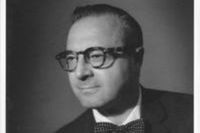
Stanley David Levison was an American businessman and lawyer who became a lifelong activist in progressive causes. He is best known as an advisor to and close friend of Martin Luther King Jr., for whom he helped write speeches, raise funds, and organize events.

William Mark Felt Sr. was an American law enforcement officer who worked for the Federal Bureau of Investigation (FBI) from 1942 to 1973 and was known for his role in the Watergate scandal. Felt was an FBI special agent who eventually rose to the position of Deputy Director, the Bureau's second-highest-ranking post. Felt worked in several FBI field offices prior to his promotion to the Bureau's headquarters. In 1980, he was convicted of having violated the civil rights of people thought to be associated with members of the Weather Underground, by ordering FBI agents to break into their homes and search the premises as part of an attempt to prevent bombings. He was ordered to pay a fine, but was pardoned by President Ronald Reagan during his appeal.

The FBI's Ten Most Wanted Fugitives during the 1970s is a list, maintained for a third decade, of the Ten Most Wanted Fugitives of the United States Federal Bureau of Investigation.
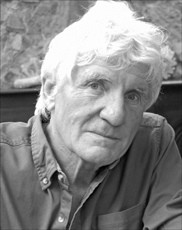
Anthony Bruce Summers is an Irish author. He is a Pulitzer Prize Finalist and has written ten non-fiction books. He worked for the BBC in current affairs coverage as a producer and then as an assistant editor of the long-running investigative documentary series Panorama. His first book was published in 1976.
The FBI files on Elvis Presley consist of records kept by the Federal Bureau of Investigation concerning Elvis Presley. These records consist of 683 pages of copies of letters from members of the public commenting on his performances, newspaper clippings, and documents reporting that Presley was the target of extortion attempts.

Edward Allen Tamm worked for the Federal Bureau of Investigation (FBI), reaching the third-highest position as Assistant to the Director before accepting an appointment as a United States district judge of the United States District Court for the District of Columbia and then United States circuit judge of the United States Court of Appeals for the District of Columbia Circuit.
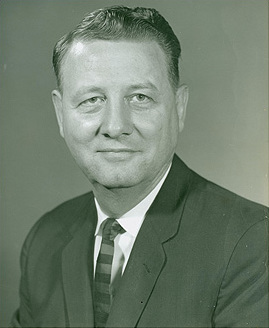
Cartha Dekle DeLoach, known as Deke DeLoach, was deputy associate director of the Federal Bureau of Investigation (FBI) of the United States. During his post, DeLoach was the third most senior official in the FBI after J. Edgar Hoover and Clyde Tolson.

J. Edgar is a 2011 American biographical drama film based on the career of FBI director J. Edgar Hoover, directed, produced and scored by Clint Eastwood. Written by Dustin Lance Black, the film focuses on Hoover's life from the 1919 Palmer Raids onward. The film stars Leonardo DiCaprio in the title role, Armie Hammer, Naomi Watts, Josh Lucas, and Judi Dench. It marked Adam Driver's film debut.
Hoover vs. The Kennedys: The Second Civil War is a four-hour 1987 made-for-television mini-series depicting the political struggles between FBI Director J. Edgar Hoover and President John F. Kennedy and Attorney General Robert F. Kennedy. The series was produced by Operation Prime Time.
J. Edgar Hoover is a 1987 American biographical drama television film written and directed by Robert L. Collins. It stars Treat Williams as the eponymous J. Edgar Hoover, the long-serving Director of the Federal Bureau of Investigation. The film is based on the 1979 book The Bureau: My 30 Years in Hoover's FBI by William C. Sullivan and William S. Brown, and dramatizes key points in Hoover's life between the time he joined the U.S. Justice Department in 1919 and his death in May 1972. It aired on Showtime on January 11, 1987.

The origins of global surveillance can be traced back to the late 1940s, when the UKUSA Agreement was jointly enacted by the United Kingdom and the United States, whose close cooperation eventually culminated in the creation of the global surveillance network, code-named "ECHELON", in 1971.

The FBI–King suicide letter or blackmail package was an anonymous 1964 letter and package by the Federal Bureau of Investigation (FBI) meant to blackmail Martin Luther King Jr. The letter was part of the FBI's COINTELPRO operation against King. Although it is referred to as the "suicide letter" as King interpreted that to be its intent, the letter does not specifically call for King to kill himself.
Richard Nixon, the 37th President of the United States, has inspired or been portrayed in numerous cultural works.














